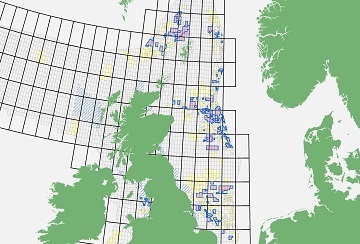The UK government said on Monday it will grant more than 100 new oil and gas licences in the North Sea as part of efforts to focus on domestic supplies and become more energy independent.
UK Prime Minister Rishi Sunak said the move was compliant with the government’s environmental targets.
Sunak said the new licences would reduce reliance on hostile states, boost jobs in the sector and reduce the carbon footprint when compared with an alternative option of importing liquified natural gas.
About 25% of the UK’s energy demand is expected to still be met by oil and gas when the UK reaches net zero in 2050.
The UK government also announced plans to set up two new carbon capture usage and storage clusters in Scotland and northern England.
It confirmed that projects Acorn in North East Scotland and Viking in the Humber have been chosen as the third and fourth carbon capture usage and storage clusters in the UK.
“As the UK is a rapidly declining producer of oil and gas, new oil and gas licences reduce the fall in UK supply in order to ensure vital energy security, rather than increase it above current levels – so that the UK remains on track to meet net zero by 2050,” the government said.
The UK government said the oil and gas industry regulator expects the first of the new licences to be awarded in the autumn.
It said the new licences could be offered close to previously licensed areas to unlock oil and gas reserves faster thanks to existing infrastructure.
In its statement, the UK prime minister’s office said: “Hundreds of new oil and gas licences will be granted in the UK, the Prime Minister has confirmed today (Monday 31 July), as the UK Government continues to back the North Sea oil and gas industry as part of drive to make Britain more energy independent.
“The Government and the North Sea Transition Authority (NSTA) are today announcing a joint commitment to undertake future licensing rounds, which will continue to be subject to a climate compatibility test.
“By adopting a more flexible application process, licences could also be offered near to currently licensed areas – unlocking vital reserves which can be brought online faster due to existing infrastructure and previous relevant assessments.
“With the independent Climate Change Committee predicting around a quarter of the UK’s energy demand will still be met by oil and gas when the UK reaches net zero in 2050, the Government is taking steps to slow the rapid decline in domestic production of oil and gas, which will secure our domestic energy supply and reduce reliance on hostile states.
“This will increase the UK’s energy security and reduce dependence on higher-emission imports, whilst protecting more than 200,000 jobs in a vital industry as we grow the UK economy.
“As part of a visit to a critical energy infrastructure site in Aberdeenshire today, the Prime Minister will highlight the central role the region will play in strengthening the UK’s energy independence and meet the next generation of skilled apprentices key to driving this work forward.
“The NSTA – responsible for regulating the oil, gas and carbon storage industries – is currently running the 33rd offshore oil and gas licensing round. They expect the first of the new licences to be awarded in the autumn, with the round expected to award over 100 licences in total.
“Future licences will be critical to providing energy security options, unlocking carbon capture usage and storage and hydrogen opportunities – building truly integrated offshore energy hubs that make the best use of the established infrastructure.
“This comes as new analysis released by the NSTA today shows that the carbon footprint of domestic gas production is around one-quarter of the carbon footprint of imported liquified natural gas. As the UK is a rapidly declining producer of oil and gas, new oil and gas licences reduce the fall in UK supply in order to ensure vital energy security, rather than increase it above current levels – so that the UK remains on track to meet net zero by 2050.”
